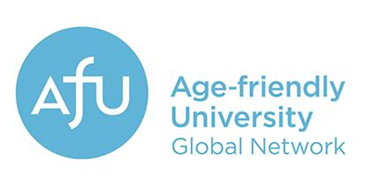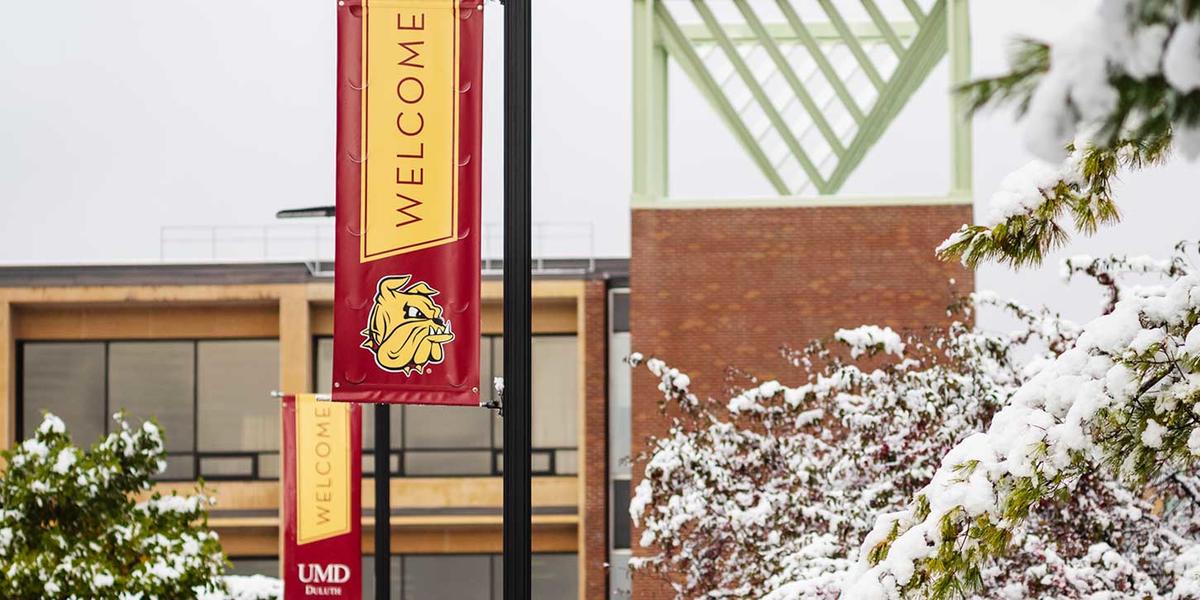The Age-Friendly University Global Network is a network of higher education institutions committed to promoting positive and healthy aging and enhancing the lives of older members of the global community through innovative educational programs, research agendas, curriculum development, online education, health and wellness activities, arts and culture programs and civic engagement opportunities.
The institutions have a shared goal of promoting an inclusive approach to healthy and active aging through research, enhanced learning opportunities for people across generations, and innovations that address issues affecting older adults.
“It’s important that everyone, regardless of their age or background, feels welcomed and supported at UMD,” said University of Minnesota Duluth Interim Chancellor David McMillan. “It’s a testament to our work of inclusion and welcoming that we’ve achieved this designation. I’m proud that it reflects our mission, and our support of the valued older adults in our communities in northeastern Minnesota.”

To become an Age-Friendly University, UMD had to demonstrate a commitment to working toward the ten age-friendly university principles. UMD’s Summer Senior program, University for Seniors, the UMD senior education program and several of UMD’s faculty research topics are just a few examples of how UMD is already engaging with the principles as an institution.
The work is being led by Assistant Professor Lacey Loomer, PhD, with university support from Director of University for Seniors Wendy J. Larrivy, M.Ed, and community support from the Arrowhead Area Agency on Aging and Duluth Aging Support.
“UMD is already engaging in several of the Age Friendly University principles, by joining the network we are formalizing our commitment and uniting individual efforts into a collective,” Loomer said. “Minnesota and Duluth are a part of the AARP Age-Friendly network, as a state university joining Age-Friendly University means we are committing to collaborating with our community to improve quality of life for Minnesotans at all ages.”
About the Age-Friendly University Global Network
In 2012 Dublin City University convened an interdisciplinary working group to identify the distinctive contributions that higher education institutions could make in addressing the needs of older adults. As a result, the Ten Principles of an Age-Friendly University were established. These principles sought to complement the existing WHO Age-Friendly Communities Program - and now serve as a core component of the Age-Friendly Ecosystem.
As institutions adopted the Ten Principles of an Age-Friendly University, there grew a need for an organizing body to promote the Principles, support adoption, and organize the growing Age-Friendly University Movement. Since its formation in 2012, the network has resonated with institutes of higher education and now has over 100 global members.
10 Age-Friendly University Principles
- To encourage the participation of older adults in all the core activities of the university, including educational and research programs.
- To promote personal and career development in the second half of life and to support those who wish to pursue second careers.
- To recognize the range of educational needs of older adults (from those who were early school-leavers through to those who wish to pursue Master’s or Ph.D. qualifications).
- To promote intergenerational learning to facilitate the reciprocal sharing of expertise between learners of all ages.
- To widen access to online educational opportunities for older adults to ensure a diversity of routes to participation.
- To ensure that the university’s research agenda is informed by the needs of an aging society and to promote public discourse on how higher education can better respond to the varied interests and needs of older adults.
- To increase the understanding of students of the longevity dividend and the increasing complexity and richness that aging brings to our society.
- To enhance access for older adults to the university’s range of health and wellness programs and its arts and cultural activities.
- To engage actively with the university’s own retired community.
- To ensure regular dialogue with organizations representing the interests of the aging population.
